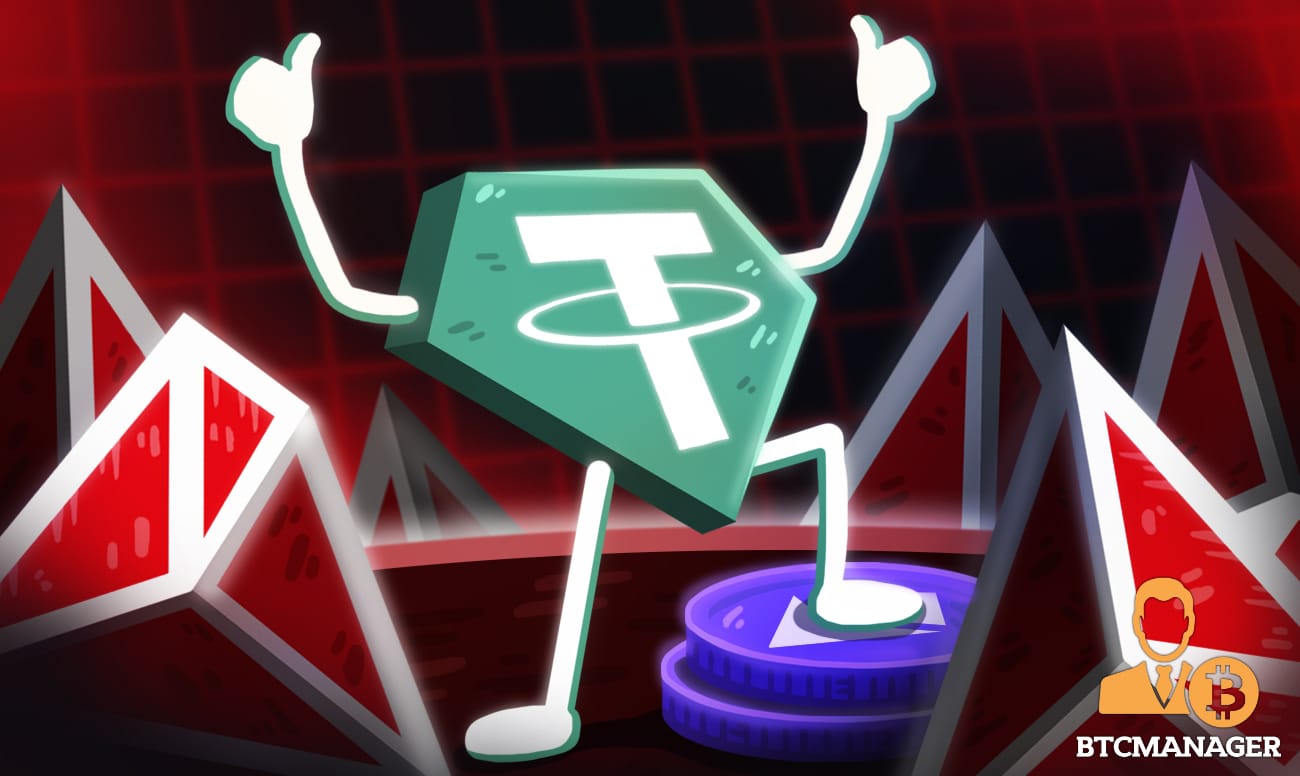More Tether (USDT) is Now Being Routed To Tron than Ethereum

There is a spike of USDT transactions in Tron, a dPoS network, based on data from Coin Metrics, a blockchain analytics firm, a CoinDesk report on Jan 21 shows.
USDT Transaction Count Explodes at Tron
Data reveals that there was a considerable spike in Tron’s USDT transactions in the last three weeks.
The surge means that the Justin Sun-led platform is currently processing more USDT transactions than Ethereum, the most actively used smart contracting platform and the bona fide home of decentralized finance, DeFi.
During this time, the network handled two million USDT transactions, up from around 0.9 million. Meanwhile, Ethereum’s USDT transactions steadied at 1.5 million.
Ethereum Gas Fees Rising
Coincidentally, the flipping came at the back of Ethereum prices rallying to an all-time high, before contracting to spot levels of around $1.3k, according to coin trackers.
This came with high transaction fees.
On Jan 19, when prices soared to over $1.4k, registering new all-time and 2021 highs, the average transaction costs rose to $16, according to BitInfoCharts. On Jan 20, the average transaction costs “Gas” in Ethereum stood at $7.3.
Ethereum versus Tron
Nate Maddrey, a Coin Metrics analyst, explained to CoinDesk that the rise in USDT processing in Tron was because of the increasing Gas fees in Ethereum.
Considering the high utility level in Ethereum and the demand of DeFi, the first smart contracting platform’s block utilization rate is always high, above 96 percent.
Since Proof-of-Work powers its consensus algorithm, requiring miners to prioritize users who pay the highest fees in its auction, they will always prefer transactions tagged with the highest fees at any point of this.
This bidding race and the quest to include a transaction in the next block almost always is the reason forcing Gas fees and block limits higher.
Meantime, Tron has adopted a different architecture, using the delegated Proof-of-Stake, a Proof of Stake variant that introduces 27 block producers, called Super Representatives, tasked with securing and processing transactions.
The capping of validators means transacting in Tron is relatively cheap. The network boasts of a higher throughput translating to low fees.
As reported by BTCManager, rising Gas fees translate to higher revenue for Ethereum miners. In August 2020, miners received more from transaction fees than block rewards.
















